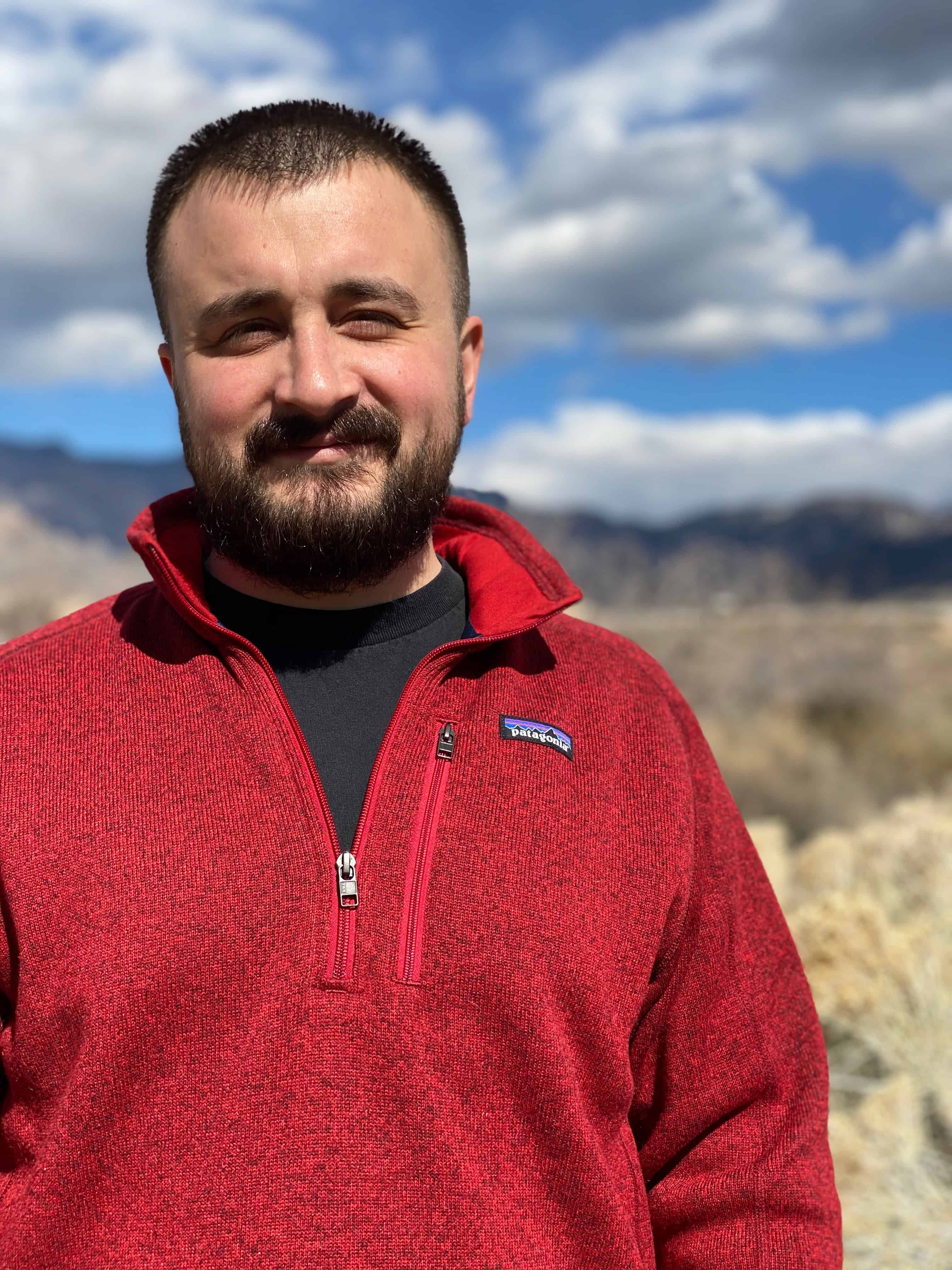
Sebastian Medina, a current Assistant professor at New Mexico Highlands University, has been involved in the New Mexico INBRE program for a majority of his professional career. Medina, a first-generation college student from a rural community in northeastern New Mexico, found that his exposure to scientific research was very limited. For Medina, the idea of biology and biomedical research as a potential career was nearly non-existent. However, his initial interest in science comes from a love of nature.
“The complexity of living organisms and interactions between organisms and the environment is something that has always intrigued me and is what propelled me to pursue a career in biology.”
As a result, while completing his undergraduate degree in biology at NMHU, he first discovered the NM-INBRE program where it provided him the opportunity to gain exposure to biomedical research in the classroom, as well as regular research lab settings.
“This made research accessible and provided me with a direct understanding of the real-world applications of the concepts being learned in the classroom. Collectively, these experiences ultimately shaped and fostered my interests in biology and biomedical research.”
Medina later attained a Ph.D. in Biomedical Sciences from the University of New Mexico Health Sciences Center. He completed his dissertation project under the mentorship of Dr. Scott W. Burchiel in the UNM College of Pharmacy. They focused on elucidating mechanisms of metal induced immunotoxicity and on characterizing the mechanistic bases of arsenic associated anemias. As a graduate student, NM-INBRE was able to help support funding of research equipment, instrumentation, and provide critical training that was essential for the success of Medina’s dissertation research.
The INBRE network has allowed Medina to foster new collaborative relationships with faculty at NMHU and with the RAIN IDeA networks. Now as a junior faculty member at New Mexico Highlands University, INBRE continues to play a role in Medina’s professional development. By receiving continued support from INBRE he has been able to establish his research program, recruit, and support student trainees who assist with performing ongoing experiments. As a result, of INBRE’s ongoing funding Medina was able to secure a Support for Research Excellence-First Independent Research (SuRE-First) Award (Grant # 1R16GM146669-01) from the National Institute of General Medical Sciences of the National Institutes of Health to continue his research.
Currently, Medina’s research involves the toxicology of environmental metals and their impacts on human health. More specifically it is focused on the understanding of mechanisms of metal-induced toxicity to hematopoietic stem and progenitor cells, which include the hematotoxicity of inorganic and organic arsenicals. Medina’s other research interests are in elucidating mechanisms of immune dysregulation produced by metal exposures.
